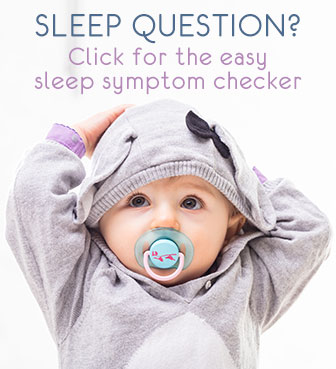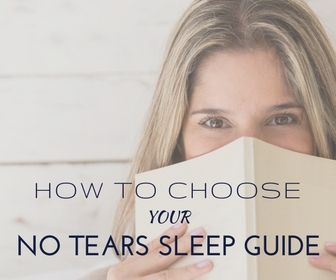Can Iron, Zinc, Magnesium, Vitamin D or Related Nutrient Deficiencies Affect My Baby's Sleep?
by Heidi Holvoet

Studies show some non-anecdotal evidence that certain deficiencies such as iron deficiency, anemia, vitamin D or zinc deficiency can affect sleep in babies and toddlers.
Specifically "shorter sleep duration and fragmented sleep" is reported.
It's not usually my first go to,
and please note that I don't see this as something every parent should get checked first and foremost. The evidence and prevalence is not strong enough for that.
But when sleep struggles persist in spite of having everything in place
- your baby or toddler is otherwise healthy, generally settled and their nervous system is not disregulated, and they're evelopmentally ready to sleep better than they do right now -
this can be important to explore.
Which Nutrients To Check For, By Age
Based on the research and scientific studies that we have (see references at the end of this article),
the elements mainly to be looked at would be:
🧪 Vitamin D deficiencies (0-3 yrs old),
🧪 Iron deficiencies (0-3 yrs old), and
🧪 Zinc deficiencies (6 months-3 yrs old)
While low magnesium levels are typically more often quoted as disrupting sleep, and anecdotal parent reports point in that direction, there's actually little scientific evidence for low magnesium levels affecting a baby or toddler's sleep.
What To Do With This Info On Nutrient Deficiencies?
- First of all, don't feel that, if your little one isn't sleeping great, "get this tested and it'll solve everything". Don't let yourself be dragged into this as if it's the ultimate quick-fix hack. It's not.
- But it may be necessary to explore, and the first step is of course to discuss with your baby's health carer.
- Know that this doesn't necessarily mean your baby has to undergo tests. Depending on your baby's age, health history, diet, etc. their doctor may suggest supplementing without tests.
- On the other hand, your baby's health carer may not be supportive to this. They may not see potential nutrient deficiencies as a factor with healthy sleep.
As always, it's then up to you to either go with this doctor's advice,or seek a second opinion elsewhere. Let your own preference, gut feeling and understanding be your guideline. - And, finally, even if your health carer agrees to test, and finds lower levels, they may or may not advise to supplement, you may or may not want to, and your baby's sleep issues may or may not improve.
Parent Stories and Opinions Re: Nutrient Deficiencies
This recent poll (on Rested!, our beloved private community platform) gives you an idea how parents here think about this, and the action they have, or haven't, taken.
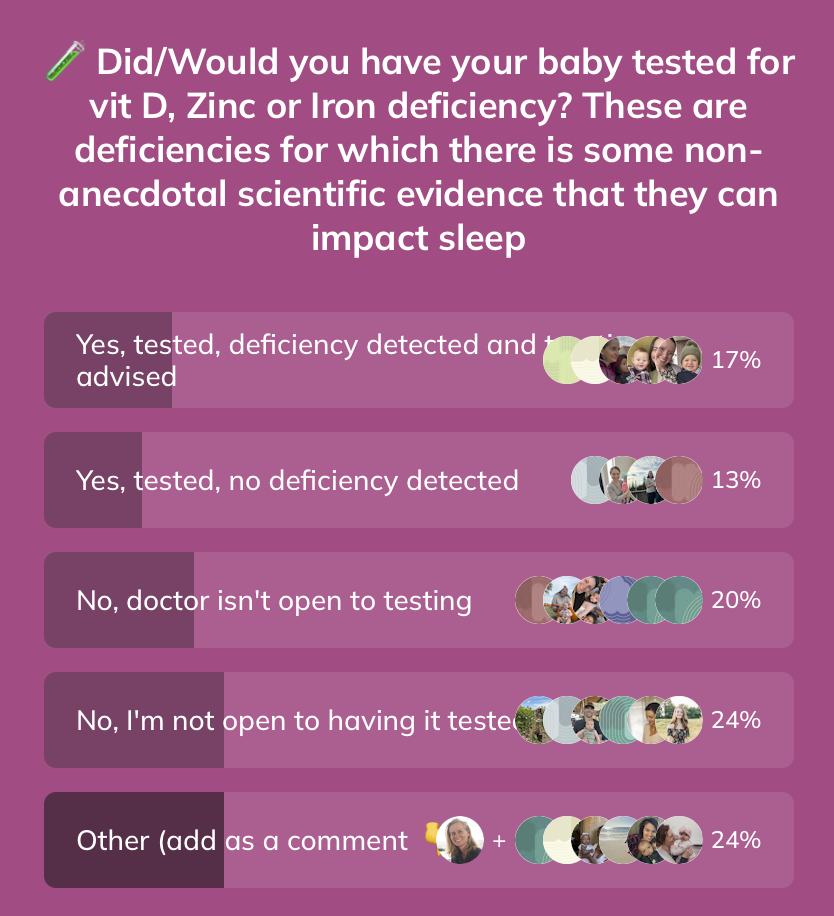
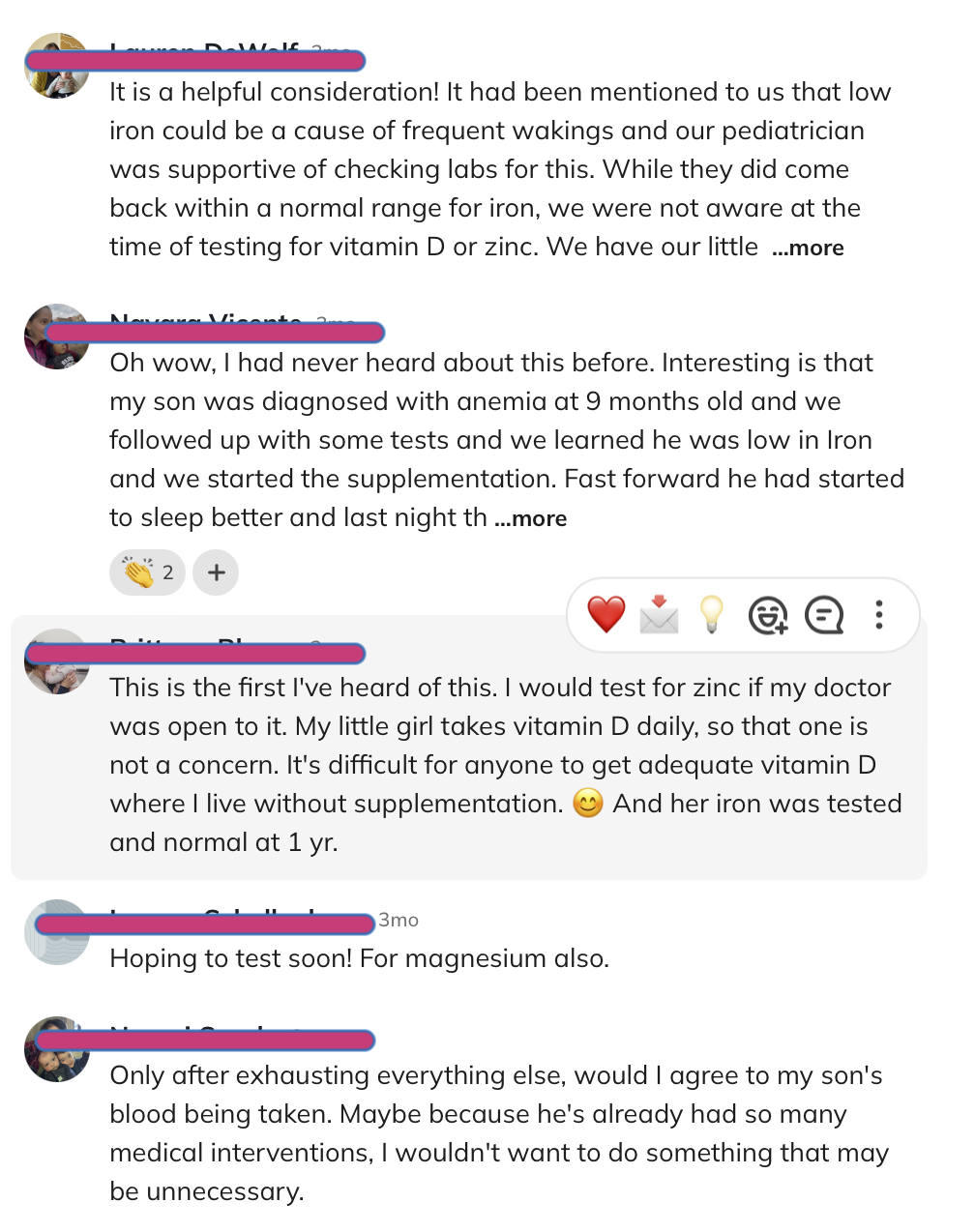
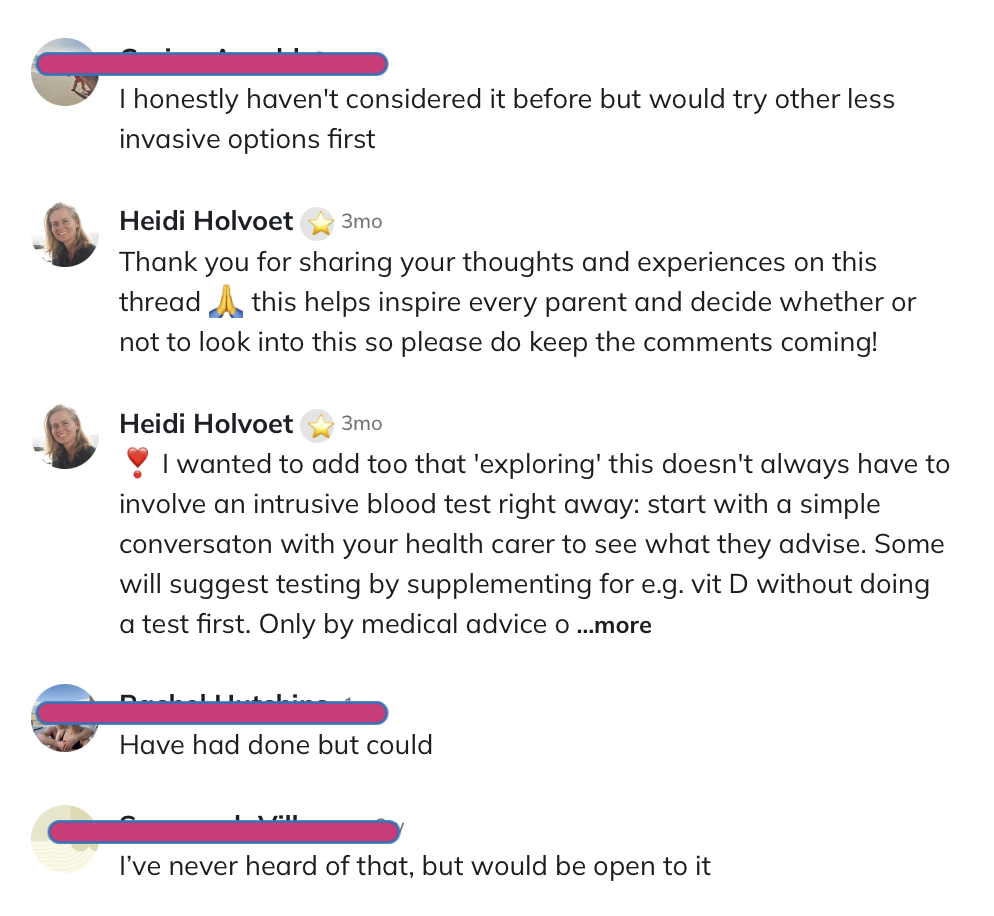
You'll also find parent stories and discussions with Iron levels and sleep on Reddit r/sleeptrain and Getting iron level tests done r/beyondthebump.
Thoughts and Discussion
Can iron deficieny, or zinc or vitamin D deficiency, cause my baby or toddlers' poor sleep? The answer is yes, but this should be considered very carefully and any supplementation of course ONLY under supervision of medical professional.
Keep in mind to take this info on nutrient deficiencies for what it is: a careful suggestion, in case this feels like something you want to discuss with your health care provider.
From parent reports, I know that while some care providers are very open and agree with tests like these. Others aren't at all and may dismiss you.
I find it difficult to accept when a doctor dismisses any parent for any reason, but in reality we do have to go by what they advise.
Don't supplement on your own of course, as too high levels of iron can be harmful. Same as with zin and vitamin D and magnesium: only supplement after medical diagnosis, and follow dosage carefully.
My single hope with this article is that, if this seems pertinent to you, and gets supported by your doctor, and it's something you want to pursue, this could be a crucial missing link for you.
Research References
These are some of the articles supporting this discussion.
Explore these and other scientific articles further, always confirming that they have a large cohort and are peer-reviewd studies ideally:
"The effects of iron and/or zinc supplementation on maternal reports of sleep in infants from Nepal and Zanzibar" https://pubmed.ncbi.nlm.nih.gov/19322104
"The association between 25-hydroxyvitamin D levels and children's sleep-wake patterns: a prospective cohort study" https://pubmed.ncbi.nlm.nih.gov/31952028
"Association between iron deficiency anemia and sleep duration in the first year of life" https://www.scielo.br/j/rpp/a/9B3rk4G4JxMbFJ7mWJGZjnc
"Anemia in pregnancy and sleep of 6-month-old infants: A prospective cohort study" https://www.frontiersin.org/journals/nutrition/articles/10.3389/fnut.2023.1049219/full

Baby waking every hour?
by Heidi Holvoet, PhD

A Bedtime Routine: Settling To Sleep Like A Charm
by Heidi Holvoet, PhD

Separation Anxiety
by Heidi Holvoet, PhD

Colic
by Heidi Holvoet, PhD

Why does my baby wake up every hour?
by Heidi Holvoet, PhD



